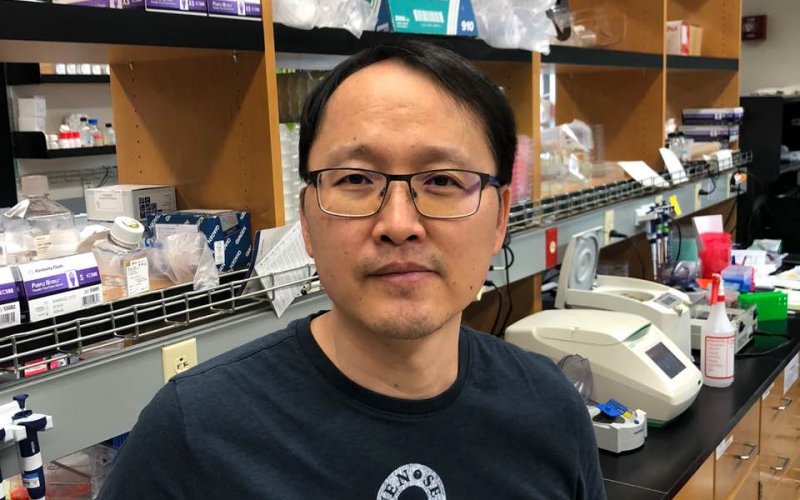Introducing Assistant Professor BK Lee

The University at Albany School of Public Health is pleased to announce BK Lee will be joining the Biomedical Sciences faculty as Assistant Professor! Read more about BK Lee:
"I have tremendous interests in transcriptional and epigenetic gene regulation in eukaryotes. I seek to understand the mechanistic role of sequence-specific transcription factors (TFs) and cis-regulatory elements (CRE) that are responsible for cell identity of stemness, and disease phenotypes. During my Ph.D. training under Dr. Vishwanath R. Iyer at the University of Texas at Austin, I interrogated the question of how and to what extent TFs and CREs regulate cellular functions and cell identity. Employing a next generation sequencing technique, I identified targets of various TFs and unearthed how interactions of TFs with CREs result in transcriptional consequences. Additionally, I elucidated how genetic variations influence heritable chromatin status and TF bindings, which lead to differential gene expression outcomes that may cause genetic disorders. Notably, I was lucky to be involved in the Encyclopedia of DNA elements (ENCODE) project so I could collaborate with many outstanding research groups.
Since 2012, I joined Dr. Jongwan Kim's lab and expanded my research area to stem cell biology which fascinates me due to the incredible potential of embryonic stem cells as future regenerative medicines. I focused on studying two unique properties of stem cells: self-renewal and pluripotency. Most recently, I further expanded my research area to the placenta and a trophoblast stem cell that is an origin of the placenta.
After long years of post-doctoral training, I am honored to join the Department of Biomedical Sciences at the University at Albany. In the future, I plan to build my expertise in genomics and transcriptional gene regulation on further understanding molecular mechanisms by which cell-type-specific TFs and CREs dictate stemness, cell identity, lineage choice, and disease pathologies. My research will expand our understanding of gene regulation in diverse aspects of cellular processes and offer a new conceptual framework that allows us to develop new therapeutic remedies targeting diseases and innovative future regenerative medicines for genetic disorders."


